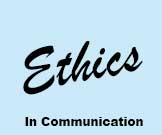|

|

|
The
Essential Ethical Exam
By Peter de Jager
It's difficult to think of a subject touchier than that of what actions
are "Right" and what are "Wrong", especially when we're discussing a
real life situation. Ethics places not only our actions and behavior
under the microscope, but it also scrutinizes our integrity and worth
as a person. Since Ethics is so personal, it is socially unacceptable
to name names when discussing specific situations. Imagine how you
would respond if I used an example in this article using your name, or
the name of your manager?
Despite this reluctance to speak frankly about ethical issues, one need
only read the headlines and newspaper editorials to know there is a
great and growing need for more emphasis on ethical behavior. Nothing
can destroy a career faster, especially if you have any amount of
fiduciary responsibility, than the exposure of unethical behavior.
Based on today's headlines, one would suspect that people don't have a
firm grasp on the difference between right and wrong. Yet I believe
most of us know exactly when we are acting unethically, and that we act
unethically with deliberate intent.
The legal system believes sane people have an innate ability to
determine "Right" from "Wrong", so much so that it includes the ability
to tell right from wrong as one of the definitions of sanity. In a real
sense, for someone to question your ethics is the same as questioning
your sanity.
If you're unsure whether or not an action is ethical, there's a simple
acid test to you. Ask yourself the question, "Would I have any
objection to having my actions detailed on the front page of a national
newspaper?" If you can honestly answer "No" then the chances are good
that you're acting ethically.
This even works when it is our intent to act unethically. The image of
that glaring headline, and the obvious consequences of such visibility,
should be enough to force us to reconsider our actions... not because
they're wrong, but because of the negative consequences.
This acid test speaks to the heart of ethical behavior; it recognizes
that an action is deemed to be ethical or not, according to public
opinion. (That sentence is a loaded one, and worthy of at least one
semester of heated philosophical debate, but for the purposes of this
discussion, "It's good enough") In some cultures there is nothing wrong
with the concept of Bakeesh ('tip' to a public official), it is merely
the accepted way of doing business.
This behavior is not as acceptable in North America, but Bakeesh isn't
totally foreign to our culture. When I was working my way through
university as a plumber's apprentice, it was made abundantly clear to
me that the plumbing inspector was "entitled" to go to the head of the
line when the coffee truck arrived. They also received large quantities
of booze as Christmas gifts, as did every other inspector necessary to
the construction of a modern building.
The question arises, when does the phrase "rank hath its privileges"
become a euphemism for "bribe"? For the answer... go back to that
question, would government inspectors be comfortable having the details
of all their gifts publicized?
To bring this closer to home, I think we'd all agree that when a
manager responsible for dealing with vendors, is receiving preferential
treatment or gifts, that it might affect their purchasing decisions...
therefore it might be better if they did not accept gifts or special
treatment. When it comes to vendor purchasing relationships, managers,
like Caesar's wife, must be above reproach.
That last point is an important one. Not only is it necessary to act
ethically, it is also necessary to protect ourselves from any suspicion
of impropriety. An accusation of wrong doing always trumps a denial.
This is why the newspaper headline test is important. It guarantees in
advance that when our actions do become public, and they will if
there's any sort of story worth reporting, then our actions will be
judged as ethical.
Source: The Canadian Association, November 2004
http://www.axi.ca/TCA/nov2004/guestarticle_2.shtml
|
|
|
|

